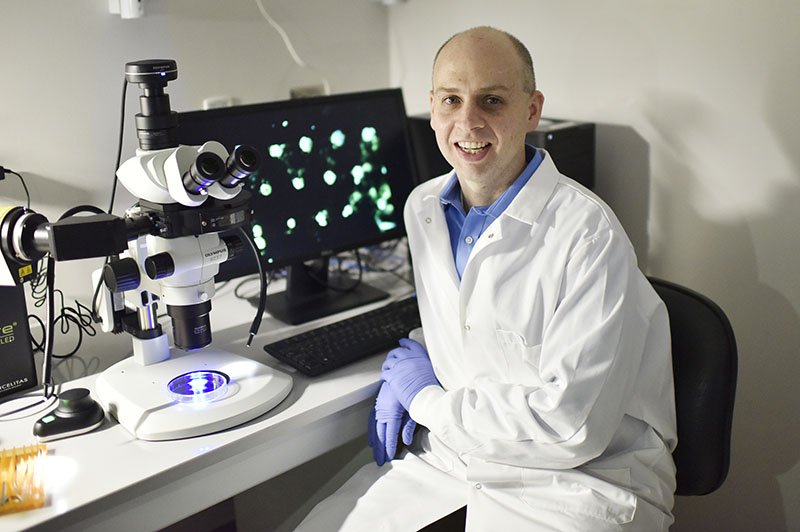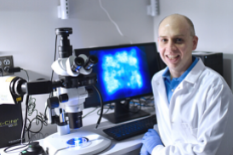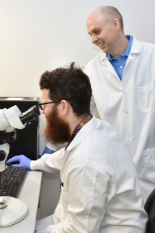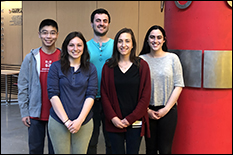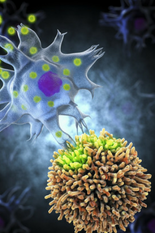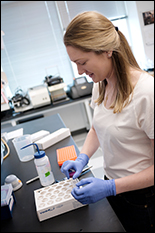News Story
Oakes Receives BIOE Postdoctoral Achievement Award
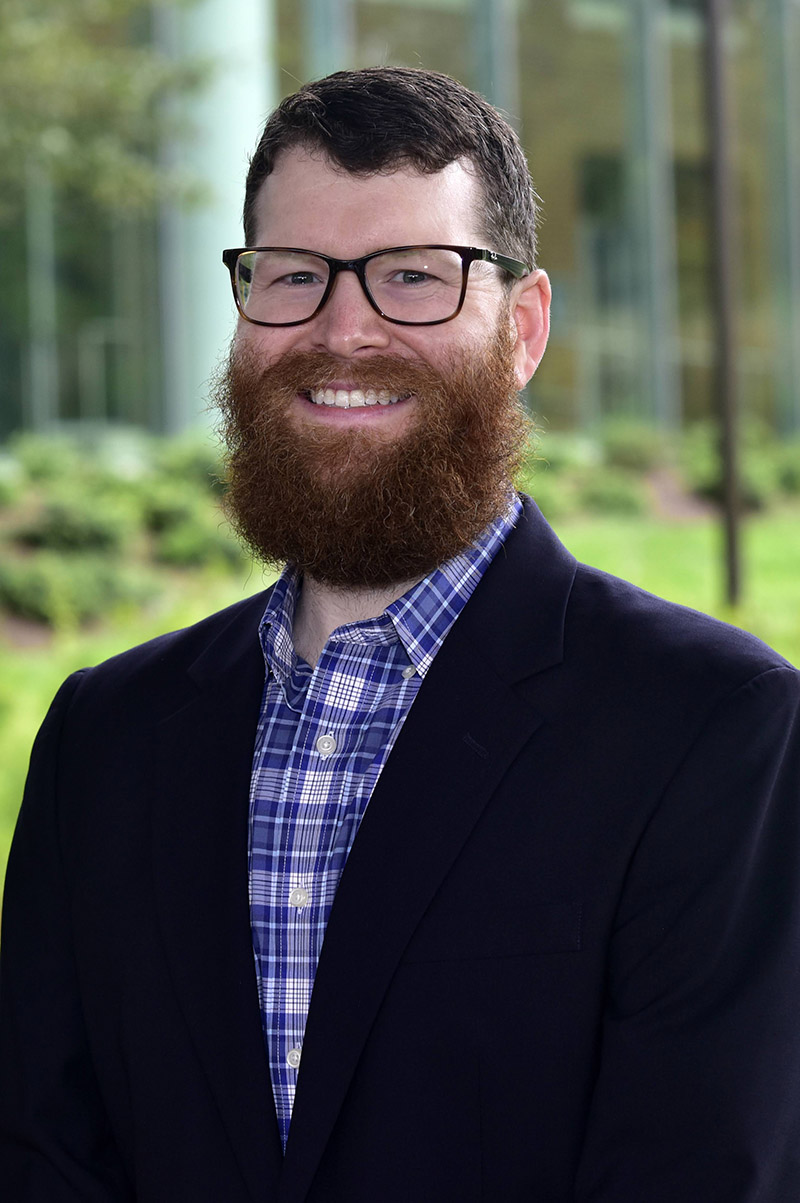
Postdoctoral fellow Robert “Smitty” Oakes was granted the Fischell Department of Bioengineering (BIOE) 2021 Postdoctoral Achievement Award in recognition of his significant accomplishments in research, funding, and community outreach.
Oakes, a member of Minta Martin Professor of Engineering Christopher Jewell’s Immune Engineering Lab, is working to develop specialized therapeutics to counter how the immune system attacks host tissue in multiple sclerosis (MS) and other autoimmune diseases.
Nearly 2.5 million people worldwide have been diagnosed with MS, an autoimmune disease that causes the body’s immune system to wrongfully attack myelin, the insulation that surrounds and protects nerve fibers in the brain and spinal cord. When this happens, nerve fibers and cells are damaged, leading to a loss of motor function and other neurological complications that greatly impact the patient’s quality of life. Current therapies for MS non-specifically decrease the activity of the immune system to restrain the detrimental “attack,” but at a cost that leaves MS patients vulnerable to certain infections or illnesses, including some cancers.
In the human body, the immune system detects antigens – molecules that are present on all cells and vary according to the type of cell – to distinguish the body’s own “self cells” from foreign cells. When functioning properly, the body’s immune system recognizes self cells by their self-antigens; this, in turn, means that foreign substances – such as bacteria, toxins, or a virus – stick out like a sore thumb, enabling the immune system to wage a specific attack and elimination.
Antigen-presenting cells play a significant role in mediating immune response by recognizing and processing antigens. Knowing this, Oakes is harnessing the power of nanotechnology to build therapeutics that dissect how each component of the immune system plays a role in promoting antigen-specific immune tolerance. Incredibly, Oakes, Jewell, and members of the lab have demonstrated that the therapeutics they developed successfully reversed established diseases in a mouse model of multiple sclerosis.
“This efficacy and preservation of healthy immunity is important as current immunosuppressive treatments leave patients susceptible to opportunistic infections,” Oakes said.
In addition to his work with MS, Oakes is also working to explore how the lymph nodes – the immune system “command centers” – can be tapped to control cancer spread, otherwise known as metastasis. Oakes is working with Jonathan Bromberg, M.D., at the University of Maryland School of Medicine to establish an in vivo cancer model that will allow bioengineers to explore new tactics for controlling or preventing metastasis.
Published November 3, 2021
